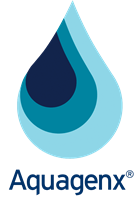Informational meetings in the Makati District will discuss water quality monitoring in the typhoon zone and how the Compartment Bag Test Can Assist Relief Efforts.
Chapel Hill, NC, December 9, 2013 – Aquagenx, LLC, a provider of innovative microbial water quality testing products that detect potential health risks, has invited Super Typhoon Haiyan response providers and water, sanitation and hygiene professionals to informational meetings about water quality monitoring in Manila on December 15 and 16, 2013.
In these meetings Aquagenx company representatives will learn about relief efforts and challenges regarding drinking water quality from front line responders in the Philippines, and will demonstrate how the Aquagenx Compartment Bag Test is useful in recovery efforts to help identify unsafe and safe drinking waters.
Contact information to request meeting Aquagenx representatives in the Philippines is below.
The Compartment Bag Test (CBT) has been approved by the Government of the Philippines Department of Health to assist with post-disaster restoration of critical water services following Super Typhoon Haiyan.
The CBT is a simple, portable, self-contained test that provides a new level of simplicity and convenience for onsite testing of the bacteriological quality of water in low resource and disaster settings. It detects and quantifies E. coli in a 100 mL sample without needing electricity, labs, cold chain, specialized technicians or extra equipment to perform the test and decontaminate the test after use. Anyone can use the CBT with little training because testing is done in simple steps with easy-to-score, visual, color change results. The test kit enables ambient incubation at 25 °C and above, generates results in 24 hours and includes built-in decontamination.
Aquagenx established its Philippines operation on December 5. Company representatives are available for continued technical support as needed to help enable low cost, simple and accurate water quality monitoring. Aquagenx is deploying the CBT in heavy hit areas in Samar while working with government officials, water sector representatives and disaster relief providers.
“It is crucial our company maintains an ongoing presence in the Philippines following this enormous natural disaster,” says Mark D. Sobsey, co-founder of Aquagenx and a Kenan Distinguished Professor at the University of North Carolina Gillings School of Global Public Health.
“Relief providers in the Philippines are struggling with water quality tests that are less portable and more cumbersome than the CBT. Furthermore, some of these tests only detect the presence or absence of E. coli bacteria in drinking water, which is inadequate to assess the safety and magnitude of risk if fecal bacteria are present. The CBT is incredibly compact, makes it easy for anyone to test drinking water onsite in disaster areas, and it tells you how much E. coli is in a 100 mL sample.”
Sobsey continues, “It is really important for people to easily and quickly quantify the amount of E. coli in water in order to determine if it is truly safe to drink or if contaminated with E. coli, and how it should be treated. Drinking water must be regularly monitored for bacteriological quality by water districts, utilities and households, not just after a disaster, but also over the long-term.”
Individuals who would like to meet Aquagenx company representatives in Manila or want more information about the CBT should contact:
Lisa Hirsh
lhirsh@aquagenx.com
919-590-0343
About Aquagenx:
Aquagenx provides innovative water quality testing products that detect potential health risks and help eliminate the millions of annual deaths due to contaminated drinking water. The Compartment Bag Test (CBT) is a portable, simple, microbial water test that addresses the needs of low resource, underserved markets. The test can be used in low resource settings and at the household level by individuals, communities, NGOs, water utilities and disaster/emergency responders for ongoing water quality monitoring.
Aquagenx and the CBT are the result of groundbreaking research and development led by Dr. Mark Sobsey and Dr. Ku McMahan at the University of North Carolina Gillings School of Global Public Health.
